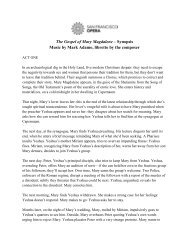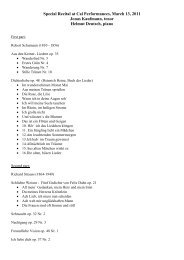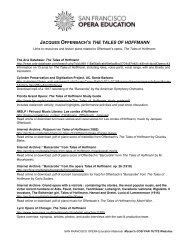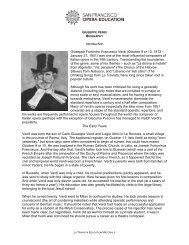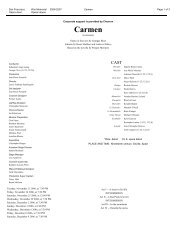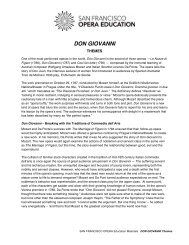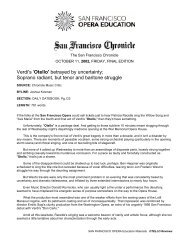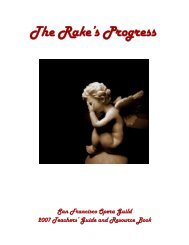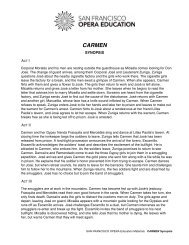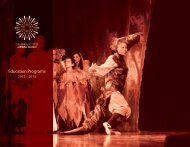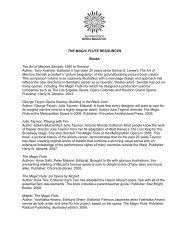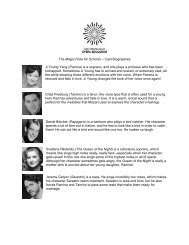Create successful ePaper yourself
Turn your PDF publications into a flip-book with our unique Google optimized e-Paper software.
<strong>Opera</strong>tic Voices<br />
<strong>Opera</strong>tic singing developed in Europe during the 17 th century. The vocal demands are far<br />
greater on an opera singer than on any other singer. <strong>Opera</strong> singers rarely use<br />
microphones and therefore must develop their voices to make a sound that will project and<br />
be heard above an orchestra in a large theatre.<br />
How do they do it?<br />
After years of practice and study, an opera singer learns to use his or her body as an<br />
amplification device. By controlling the muscles of the diaphragm (a balloon-like muscle<br />
beneath the lungs and above the stomach) the singer can regulate the amount of breath<br />
used. By tightening the diaphragm the singer can push out the right amount of air to make<br />
the vocal cords vibrate. The speed at which the chord vibrates determines the pitch. As<br />
the sound passes through the mouth it resonates in the upper chest cavities and the sinus<br />
cavities of the face and head. These cavities act as small echo chambers and help amplify<br />
the sound. The shape of the mouth and the placement of the tongue near the lips<br />
contribute to the tone and sound of the words.<br />
Many singers begin their operatic training in university or before. <strong>Opera</strong> students study<br />
singing, music history, composition, acting, movement, and theory. In addition to<br />
performance skills, they study diction and at least one foreign language. The most popular<br />
opera languages are Italian, German, and French. After university, singers begin to work in<br />
the professional world. Their first roles are usually small parts, but if they continue to study<br />
and train, they may move on the bigger principal roles.<br />
Professional singers develop a number of roles in their repertoire. Since the principal<br />
artists are required to have their parts memorized before rehearsals begin, singers must<br />
prepare well in advance of each contract. Singers have voice teachers who help them<br />
refine their singing techniques and many will also have an acting coach. Even a wellestablished<br />
singer will have a vocal coach for specific roles.<br />
Each person’s vocal mechanism is constructed differently. The roles that a singer performs<br />
are dependent mostly upon their vocal range, but within the vocal ranges there are many<br />
colors and weights of voice that determine which roles he or she can sing safely and<br />
34



